Have you ever wondered, “what is a game of chance” while playing cards or rolling dice? Lady Luck rules these games, where random events decide if you win or lose. We’ll break down eight key rules about games of chance, from slot machines to roulette wheels, in plain English.
Get ready to discover the secrets behind these thrilling games that keep millions hooked worldwide.
Key Takeaways
Games of chance rely purely on random events and luck, not player skill. Examples include slots, roulette, dice games, and lotteries, where outcomes can’t be controlled or predicted.
The house edge varies by game – from 0.28% in Blackjack to 25-29% in Keno. Nevada casinos earned $262 billion in 2017 from these games.
Smart players use bankroll management by betting only 1-5% of their budget per game. This helps avoid chasing losses or making emotional bets.
Each gaming event stands alone and isn’t affected by past results. The “gambler’s fallacy” wrongly assumes previous outcomes influence future results.
Laws treat games of chance differently from skill games. Most require special permits and licenses, especially for lotteries and casino operations.
Table of Contents
Definition of a Game of Chance

Now that we’ve covered the basics, let’s dive into what makes a game of chance tick. Games of chance rely on Lady Luck’s whims rather than your gaming skills, but that’s part of the thrill. At Caesars Palace online casino promo, random events rule the roost, offering an exciting unpredictability that keeps every moment fresh and engaging.
Think dice rolls, card draws, or wheel spins – these games don’t care if you’re a genius or a newbie.
Luck is not a strategy, but it’s the only strategy in pure games of chance. – Casino Floor Manager, Las Vegas
The core idea boils down to randomness and probability. Pure games of chance, like slot machines and bingo, give players zero control over the outcome. Your decisions barely matter here.
The house edge stays constant, no matter how smart you play. Dice games, lotteries, and prize draws fall into this category too. I’ve seen countless players try to outsmart these games, but random number generators and probability always win in the end.
Key Characteristics of Games of Chance
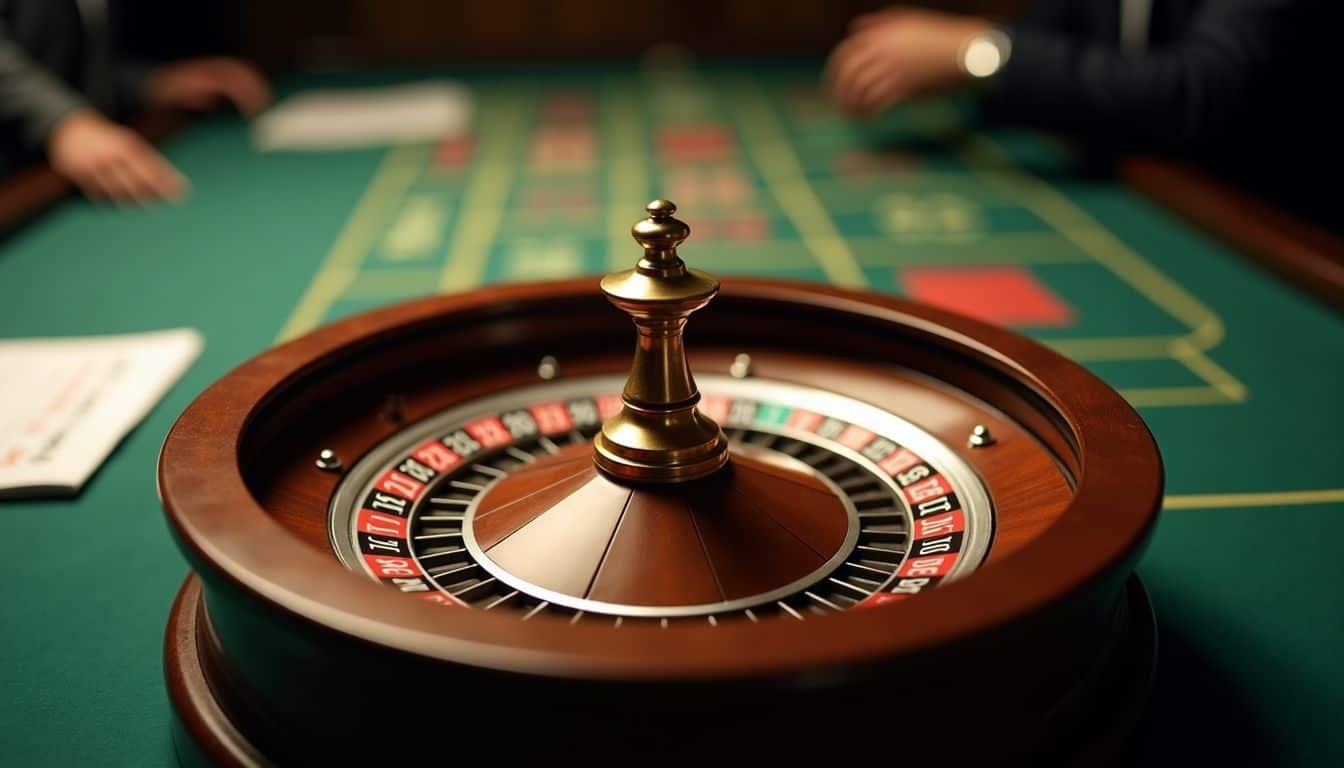
Games of chance follow strict rules that shape how players win or lose. Lady Luck plays the main role in these games, where random events decide who takes home the prize.
Reliance on Randomness

Lady Luck rules the roost in every game of chance through pure randomness. No player can predict what happens next, just like rolling dice or flipping a coin. Digital random number generators power modern casino games and online betting platforms.
These systems create billions of possible outcomes per second, making each spin or deal totally random.
Pure chance drives the results in table games like baccarat and craps. Smart players know they can’t beat true randomness with systems or strategies. The house edge stays constant, no matter what betting pattern you try.
Digital gambling uses complex math to copy real-world randomness perfectly. Your best move is to accept that Lady Luck calls all the shots. The odds never change, and past results don’t affect future spins.
Minimal Influence of Player Skill

Games of chance strip away the need for complex skills or strategies. Your choices barely affect the final result in these games. A roll of dice, a spin of the roulette wheel, or a deal of cards follows fixed odds betting patterns.
The random nature of these games means even expert players can’t control their outcomes.
Luck is what happens when preparation meets opportunity in games of chance – Anonymous
Player decisions matter very little in pure chance-based games like punto banco or fruit machines. The house edge stays constant, no matter how you play. Your betting choices might change how much you risk, but they won’t improve your winning odds.
Smart players focus on bankroll management instead of trying to beat the system through skill. This fact makes games of chance different from skill-based activities like video poker or sports betting.
Element of Probability

Probability rules the roost in every roll of dice and flip of cards. Math geeks love this stuff because probability theory shows us exactly how likely we’ll win or lose. The house edge, a key number in probability calculations, tells us the casino’s mathematical advantage.
For example, a roulette wheel has 38 slots but pays out as if it only had 36, creating that sweet spot for casinos to profit.
Lady Luck plays tricks on our minds through probability’s sneaky ways. Most pathological gamblers fall for the “gambler’s fallacy” – thinking past results affect future outcomes. The truth? Each bet stands alone, like a fresh start.
Expected value (EV) acts as our crystal ball, showing average returns over time. Smart players crunch these numbers before placing their wagers, turning random chance into calculated risks.
Role of Luck vs. Strategy

Lady Luck plays the main role in games of chance, pushing skill to the back seat. A pure luck game like bingo needs zero strategy – you just mark numbers and hope for the best. Your choices barely matter in these games, unlike chess, where practice makes perfect.
Games of skill let players use their brains to win, but chance games follow fixed odds betting rules. Smart players know this truth: no special moves or secret plans can beat random chance.
The house edge stays firm, no matter what betting system you try. Your best move? Set clear money limits and play for fun, not profit.
Common Types of Games of Chance
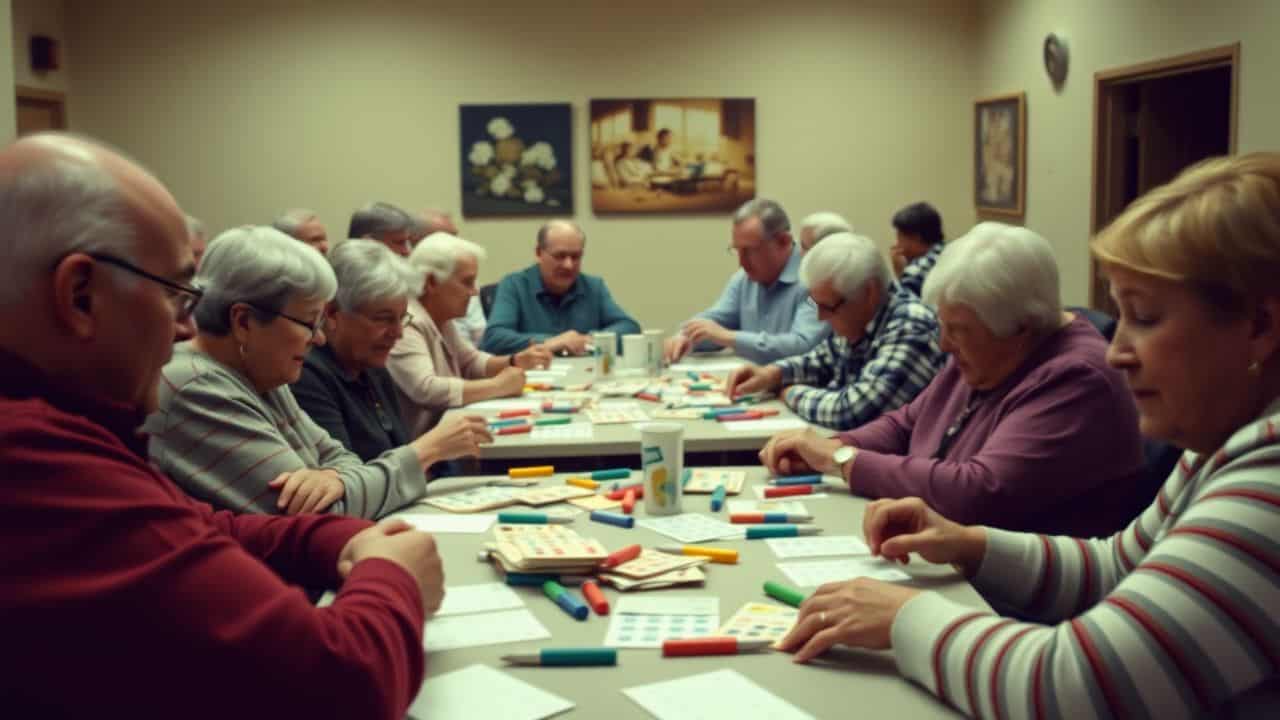
Games of chance pop up in many forms, from the bright lights of Las Vegas to the corner store lottery ticket. Lady Luck rules these games through dice rolls, card shuffles, spinning wheels, and number draws.
Casino Games

Casino floors buzz with energy from video poker, roulette, craps, blackjack, and baccarat tables. Each table offers its own flavor of luck and chance, pulling in players like moths to a flame.
I’ve spent countless nights watching the roulette wheel spin and dice roll across felt-covered tables. The house edge varies for each game, taking a small cut from every wager money placed.
Las Vegas casinos rake in billions each year, with Nevada hitting $262 billion in 2017 alone. Slot machines stand as the purest form of chance gaming, requiring zero skill to play.
The bright lights and cheerful sounds mask the fixed odds betting terminals‘ true nature. Smart players know their limits and stick to them, treating these games as entertainment rather than a path to riches.
Lottery and Raffles
Lotteries and raffles stand as the most popular games of chance in America. The IRS keeps a close eye on these activities, requiring strict reporting of winnings and special bank accounts for proceeds.
Many nonprofits must grab state licenses before running raffles, making these games more regulated than you might think. Pathological gambling often starts with simple lottery tickets, so smart players set firm limits.
State laws control how groups handle raffle money and track winners. Most nonprofits must put their raffle earnings in separate bank accounts to stay legal. Your local bingo night or church raffle follows the same basic rules as big state lotteries.
These rules help stop cheating and keep games fair for everyone who plays. The Indian Gaming Regulatory Act also shapes how tribal groups run their lottery games.
Dice and Card Games
Moving from lottery tickets to table games, dice and cards offer more direct gaming action. These classic games bring luck and chance right to your fingertips. Dice games like craps use simple six-sided cubes to create exciting moments of pure chance.
Card games mix things up with 52 playing cards that create countless random combinations.
Players roll dice or deal cards to test their luck in games like poker and bridge. Each roll or deal creates a fresh start with new odds. I’ve spent countless nights playing these games, and the thrill never gets old.
The best part? You don’t need fancy equipment – just grab some dice or a deck of cards, and you’re ready to play. These games work great for both casual fun and serious wagering, depending on your style.
Wheel-based Games
Wheel-based games stand as the kings of pure chance in casinos worldwide. Roulette leads this pack with its iconic spinning wheel and tiny white ball that dance together in a mesmerizing show.
Players gather around the table, placing their bets on numbers, colors, or combinations while the wheel spins away. The thrill comes from the complete randomness – no skill can control where that ball lands.
Lady Luck rules these games with an iron fist. The wheel’s spin creates true random outcomes that no one can predict or control. Online casinos now offer digital versions of these classics, but they stick to the same basic rules.
The house edge stays constant whether you play in Vegas or on your phone. Smart players know these games work best as entertainment, not a path to riches. They set strict betting limits and never chase losses in the hope of a lucky streak.
Games of Chance vs. Games of Skill
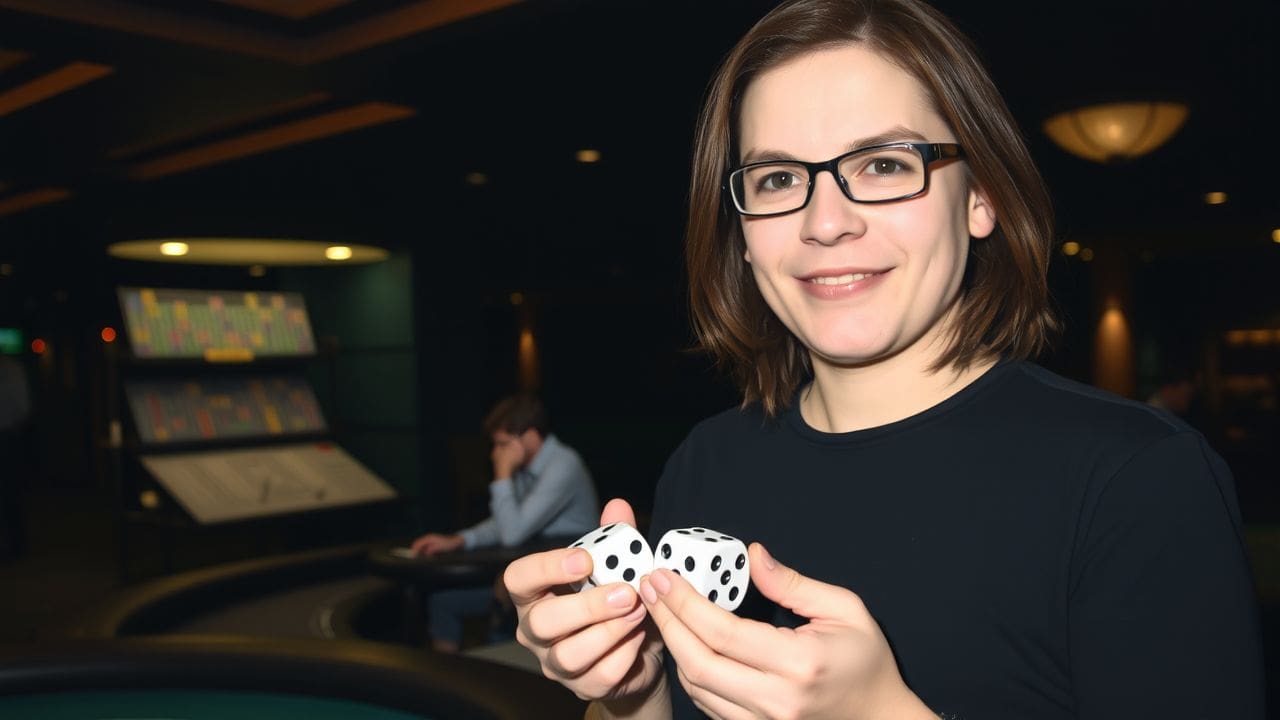
Games of chance rely on pure luck, while games of skill need your brain power and practice – just ask any crossword puzzle fan who’s spent hours mastering their craft! Want to know more about how these games stack up against each other? Keep reading!
Key Differences
Skill-based games put you in control, while chance-based ones leave your fate to Lady Luck. I learned this firsthand at a casino night, where my crossword skills meant nothing at the roulette table.
Pure chance games need zero expertise – just grab the dice and roll. Your brain power won’t change those random outcomes one bit.
Luck is what happens when preparation meets opportunity… except in games of chance, where preparation takes a back seat.
Random events rule chance-based activities, but skill games reward practice and strategy. The law sees this difference too. Most states treat poker and blackjack differently from slots or lottery tickets.
Your choices matter in skill games – like solving a tough Merriam-Webster puzzle. But in chance games, smart moves don’t boost your odds of winning. That’s why casinos love these games – they keep the edge, no matter what players do.
Legal Distinctions
Laws treat games of chance and skill quite differently. The Supreme Court of Canada made this clear in their 1968 ruling about bridge in Ross, Banks and Dyson v. The Queen. They said bridge needs more brain than luck to win.
Most countries follow strict rules about games of chance to stop IGaming problems.
Each state and country picks its own path on gambling laws. Pure chance games face tough rules and need special permits to run. Games that mix skill and luck, like poker, sit in a gray area.
The rules change based on where you play. I learned this the hard way after trying to host poker nights in different states. Some places gave us no trouble, while others shut us down fast.
Gambling vs. Gaming Classification
The line between gambling and gaming gets fuzzy in today’s digital world. Gaming focuses on player skills, strategy, and pure entertainment value. Think of your favorite video games – they test your reflexes and decision-making abilities.
Gambling, on the other hand, brings money into the mix through side bets and pure chance. I learned this difference the hard way after spending countless hours mastering Street Fighter, only to realize my friend’s poker nights operated on totally different principles.
Gaming laws treat these activities quite differently. Most places allow skill-based games without special permits or age limits. But games of chance face strict rules about who can play and where.
Here’s the tricky part – some activities blur these lines. Take poker, for example. The cards you get depend on luck, but how you play them needs skill. The government looks at which factor matters more to decide if something counts as gambling or gaming.
This matters big time for both players and businesses, since gambling addiction risks require extra safeguards.
Understanding Probability in Games of Chance
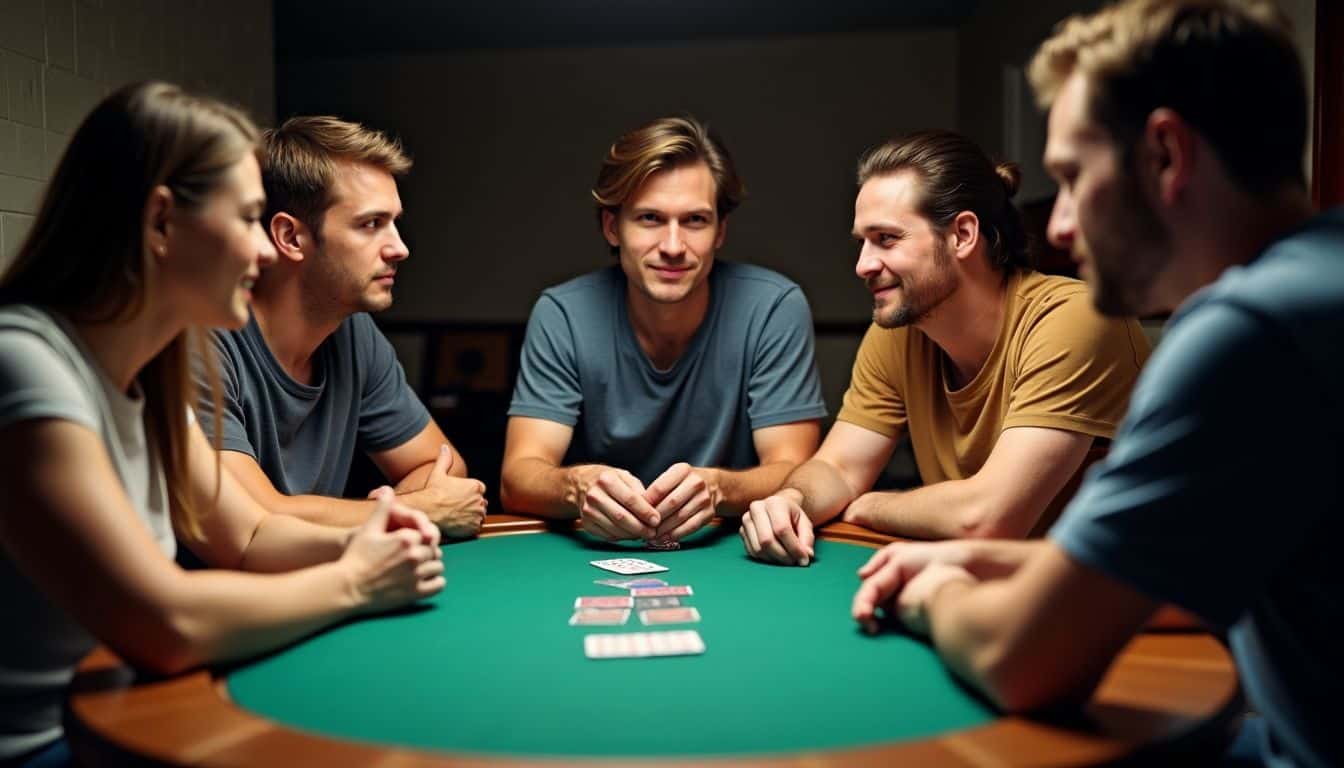
Probability rules the fate of every dice roll, card flip, and wheel spin in games of chance. Math nerds love this stuff because they can calculate the exact odds of winning, but Lady Luck still has the final say in each game.
Basic Probability Concepts
Numbers control random events. Basic math reveals probability patterns in games with dice, cards, or wheels. The three main types of odds we look at are classical (like coin flips), empirical (based on past data), and gut feeling (what we think might occur).
These concepts help us calculate our chances of winning or losing.
Chance influences our minds through something called the law of small numbers. People often think a few wins mean they’re on a hot streak, but that’s not how math works. Each roll of the dice or spin of the wheel is independent.
The past results don’t change what happens next. This combination of pure chance and game of skill elements makes probability both engaging and challenging to understand.
House Edge
The house edge stands as the casino’s built-in profit margin on every game. I learned this the hard way at Vegas tables – the house always keeps a small slice of every bet. Take Baccarat’s Banker bet with a tiny 1.06% edge, or Blackjack’s mere 0.28% under Liberal Vegas rules.
These numbers show why smart players stick to certain games.
Math nerds, listen up! The house edge boils down to a simple ratio of your average loss compared to your first bet. Each game carries its own edge percentage. Keno hits players hard with a 25-29% house advantage, while Blackjack treats players better.
The rules and your gameplay choices can shift these percentages up or down. I’ve seen countless players ignore these numbers and lose big. Don’t be that person.
Expected Value
Beyond house edge lies a crucial math concept called expected value (EV). Smart players use EV to figure out if a bet will make or lose money over time. Think of EV as your crystal ball into future wins and losses.
Every bet in a game has its own EV score. Positive EV means you’ll likely win money in the long run – these are the golden tickets players hunt for. Negative EV bets favor the casino, like those duck selection games where you have a 60% chance to win small prizes but only 10% for big ones.
Most casino games pack negative EV, which explains why casinos stay in business. Players need to crunch these numbers before placing bets. A simple rule helps: multiply your chances of winning by the payout, then subtract your chances of losing multiplied by your bet size.
Common Misconceptions
Moving from expected value calculations, let’s tackle some popular myths about games of chance. People often fall for the gambler’s fallacy – a brain trick that makes us think past results affect future outcomes.
Many players believe a coin must land heads after five tails in a row. This thinking is flat-out wrong. Each flip stays at 50-50, no matter what happened before.
Most folks also mess up their view of random patterns. They see three wins in a row and think they’re on a “hot streak.” Or they spot five losses and figure they’re “due” for a win.
The truth? Small samples fool us big time. Our brains love to find patterns, even where none exist. The law of small numbers tricks players into making bad choices based on tiny data sets.
Lady Luck doesn’t keep score or play favorites – she treats each bet as brand new.
Simple Games of Chance You Can Try
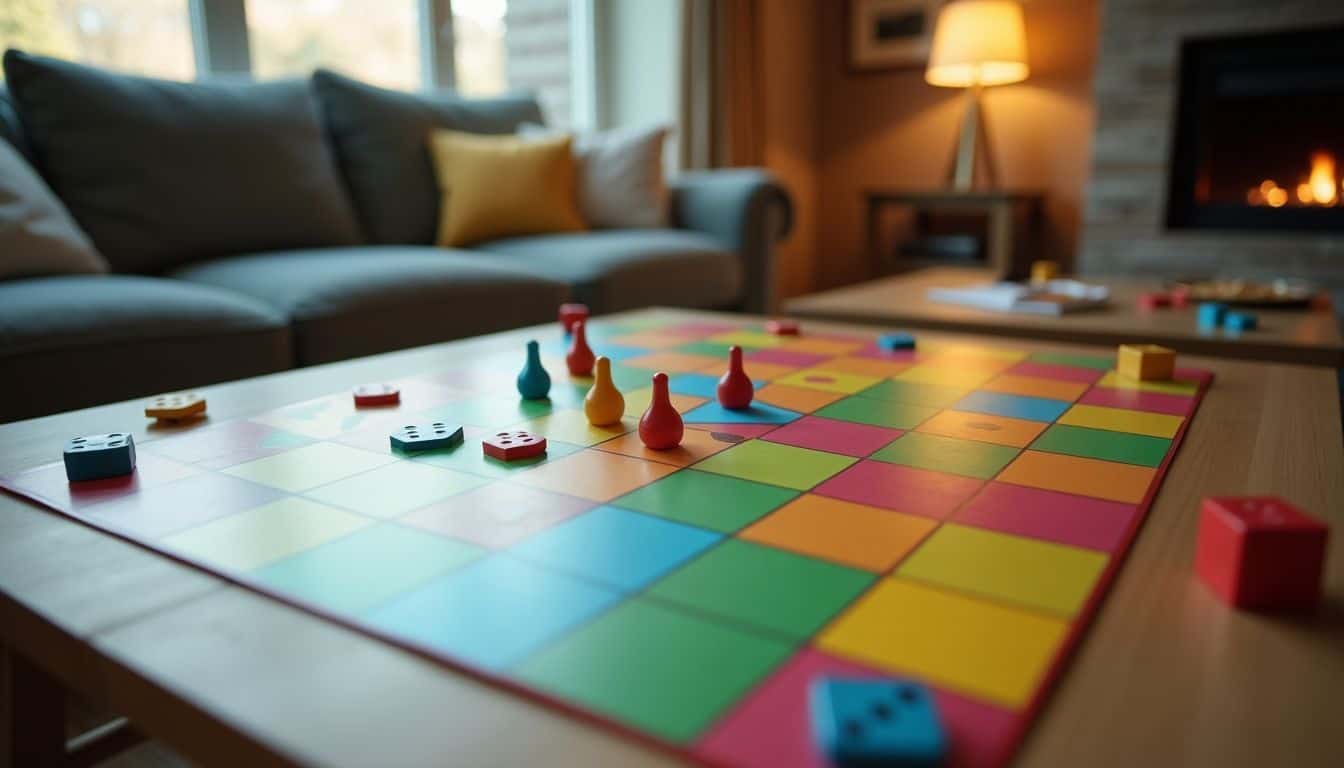
From flipping a coin to rolling dice, you’ll find tons of fun DIY games of chance right in your home – grab some friends and let’s explore more exciting ways to test your luck!
DIY Games and Activities
Creating your own games of chance brings out the inner mad scientist in every geek. I’ve turned my garage into a mini-casino using simple items like paper cups, marbles, and playing cards.
My favorite DIY setup involves a homemade roulette wheel built from a lazy Susan, some wood dividers, and a bouncy ball. The best part? No fancy equipment needed!
Building chance-based games lets you mix math and fun in perfect geek harmony. Try making a probability board with pushpins and a marble – it’s basically a real-life version of Plinko from “The Price is Right.” My friends love our monthly game nights where we test new DIY creations.
Last month’s hit was our “Random Number Racing” using dice and a hand-drawn track. The pure joy of watching probability unfold makes every failed prototype worth it.
Party Games
Party games bring out the inner child in every geek. The Saran Wrap Game stands as a crowd favorite, where players unwrap layers of plastic wrap to find hidden treasures. I’ve hosted this game at countless gatherings, and it never fails to spark competitive spirits.
The Post-It Note Game adds another layer of fun – stick a note on your forehead with a character name and guess who you are through yes-or-no questions. These games work perfectly for any group size and keep everyone engaged.
Spoons takes the classic card-matching concept to a whole new level of excitement. Players rush to grab spoons from the center of the table while trying to collect matching cards. The best part? These games fit any occasion, from birthday bashes to casual hangouts.
My gaming group loves mixing these with our regular tabletop sessions for a change of pace. The beauty lies in their simplicity – minimal setup, maximum entertainment. Let’s explore how probability plays a role in these chance-based activities.
Educational Games
Educational games make math fun through clever probability lessons. Students love playing “2 Dice Probability Bingo Game” because it turns numbers into an exciting challenge. The Game of Skunk Scorecard helps kids grasp basic statistics while they compete with friends.
These games match Common Core State Standards and make learning feel like playtime.
“Minecraft Fishing and Probability” brings math concepts to life in a virtual world. Players track their catches to understand odds and percentages. I’ve seen students light up when they figure out fishing patterns in the game.
The best part? They learn complex math ideas without feeling like they’re studying at all. These digital adventures make probability stick in their minds better than any textbook.
Strategies for Playing Games of Chance
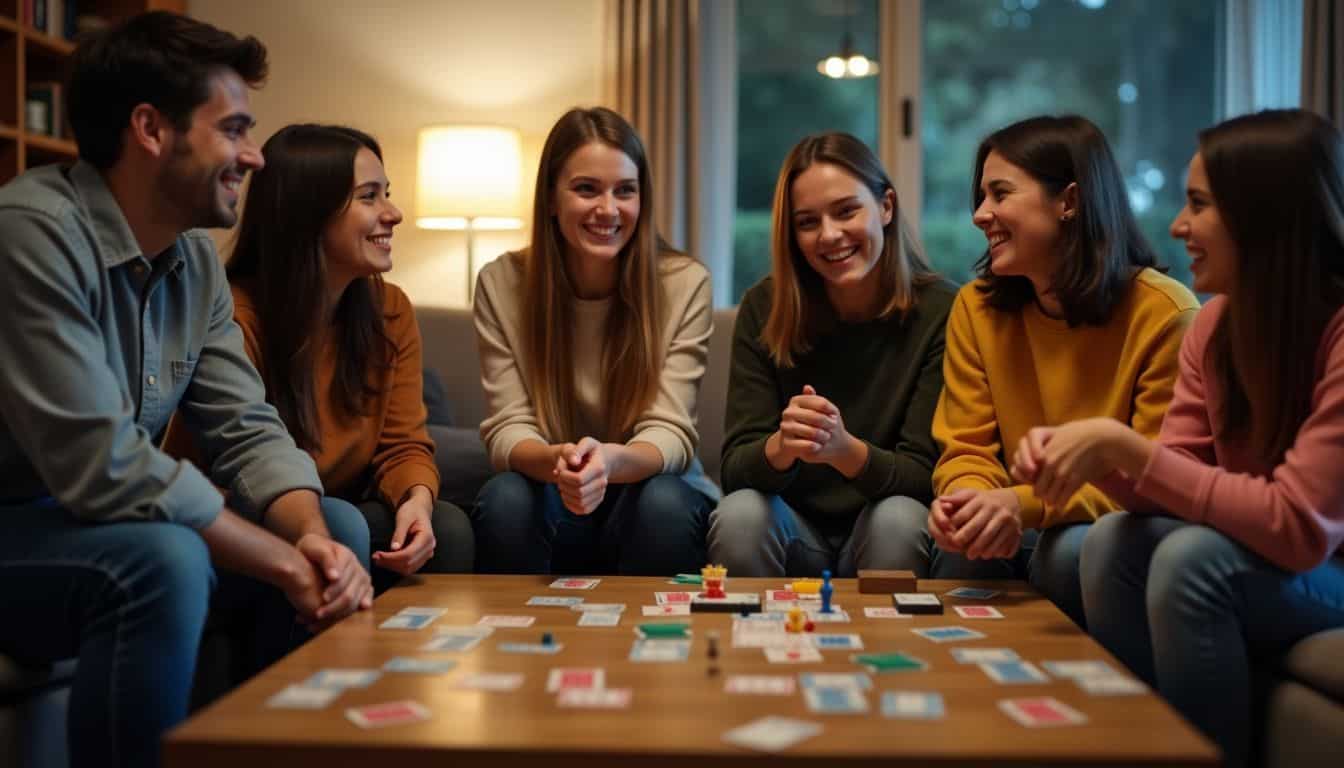
Smart players know that games of chance need a solid plan. You’ll need clear limits on your spending and sharp focus on the fun, not just the winning.
Risk Management
Risk management starts with a simple rule: never bet more than you can lose. I learned this the hard way after blowing through my savings at a casino years ago. Today, I stick to betting just 1-5% of my spare cash, which keeps the fun going without the stress.
This matches what pro gamers call “smart money management” – a key part of strategies for games.
Money control needs clear limits and fixed bet sizes. I split my gaming budget into smaller chunks instead of bringing it all at once. This stops those “one more bet” moments that can wreck your wallet.
Fixed bets help too – they keep emotions out of your choices. Think of it like having a gaming allowance that lets you play longer while protecting your bank account.
Bankroll Management
Smart money handling goes hand in hand with good risk control. Money management stands as your shield against losing too much cash at once. The golden rule stays simple: never bet more than 1-2% of your total gambling money on a single bet.
This keeps you playing longer and protects your wallet from big hits.
Your gambling budget needs clear limits before you start playing. Set a firm dollar amount you can lose without hurting your daily life. Many players blow their savings because they chase losses or get too excited during wins.
The math shows that smaller bets work better – they help your money last through rough patches. Stick to games like baccarat, where you can make steady bets on Player or Banker. This approach helps you dodge the trap of making bigger bets to cover losses.
Common Pitfalls to Avoid
Money management leads straight into the danger zones you need to dodge. Players often fall into risky traps that can drain their wallets fast. Overconfidence tricks many into thinking they’ll win big, which leads to major losses.
The mix of alcohol and gambling creates bad choices at the tables.
Taking breaks matters more than most think. Your brain gets tired after hours of play, and fatigue leads to costly mistakes. The biggest danger lies in chasing losses – throwing good money after bad never works out.
Setting a firm budget stops the spiral of betting more than you can afford to lose. Stick to your limits like they’re made of steel.
Responsible Gaming Practices
Smart players set clear limits before they start playing. You need a fixed budget that won’t hurt your daily life if you lose it. Playing games of chance should feel fun, like watching a movie or going to dinner.
Stop playing right away if you feel stressed or upset about losing money. Never borrow cash or use credit cards to play these games.
Good players track every dollar they spend on games. Keep a record of wins and losses in a simple notebook or phone app. This helps you stay honest about your gaming habits. Most players lose more than they win – that’s just how these games work.
Treat any wins as pure luck, not skill. The best rule? Play for fun, not profit.
People Also Ask
What makes a game count as a game of chance?
A game of chance happens when Lady Luck, not skill, decides who wins. Think slots, dice games, or roulette – your choices don’t change the outcome. The house sets the rules, and random luck does the rest.
Can you get better at games of chance?
Nope! That’s what makes them special. No amount of practice will help you roll better dice or pick winning lottery numbers. These games rely purely on random events, like flipping a coin or spinning a wheel.
Are casino games all about chance?
Not always! Some casino favorites mix luck and skill. Take poker – you need both good cards (chance) and smart plays (skill). But pure chance games, like slots or keno, depend only on random luck.
Why do people love games of chance?
The thrill! It’s like waiting to open a gift – you never know what you’ll get. Games of chance give us quick results and big dreams. Plus, they’re easy to learn since you don’t need special skills. Just remember: the house always has an edge!
References
https://en.wikipedia.org/wiki/Game_of_chance
https://www.newpelican.com/articles/odds-of-lady-luck-or-how-math-rules-the-cards-and-dice/ (2024-10-30)
https://sites.miamioh.edu/tabletop/2021/04/luck-v-chance-v-skill-reflection/ (2021-04-15)
https://www.americangaming.org/responsibility-old/understanding-odds/
https://www.randomservices.org/random/games/index.html
https://www.legalkart.com/legal-blog/game-of-skill-vs-chance-explained
https://resources.finalsite.net/images/v1720539653/grovecityk12paus/casziw5ogbqtljfvgimt/ch04.pdf
https://wizardofodds.com/gambling/house-edge/
https://fs.blog/misconceptions-of-chance/
https://www.realsimple.com/holidays-entertaining/entertaining/party-games-ideas (2024-10-17)
https://www.teacherspayteachers.com/browse/free?search=chance%20and%20probability%20games
https://boardgamegeek.com/thread/83230/musings-on-18-element-of-chance-in-board-game-desi (2005-10-17)
https://www.eyeonannapolis.net/2024/02/how-to-properly-manage-your-bankroll-when-playing-real-money-baccarat/ (2024-02-14)
https://casino.borgataonline.com/en/blog/games-of-chance-or-games-of-skill/ (2023-05-15)
https://prometteursolutions.com/blog/responsible-gambling-practices-a-comprehensive-guide/
